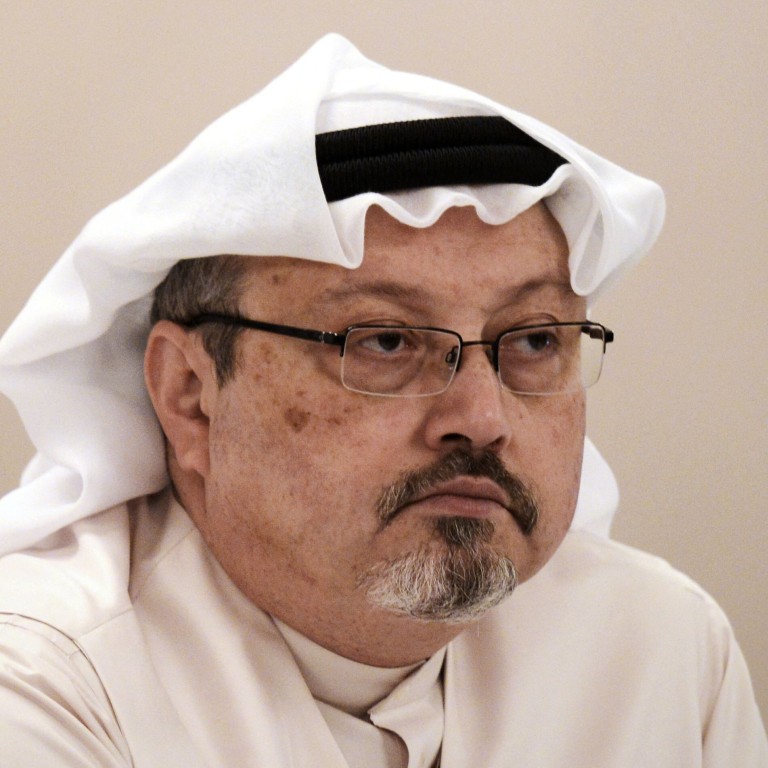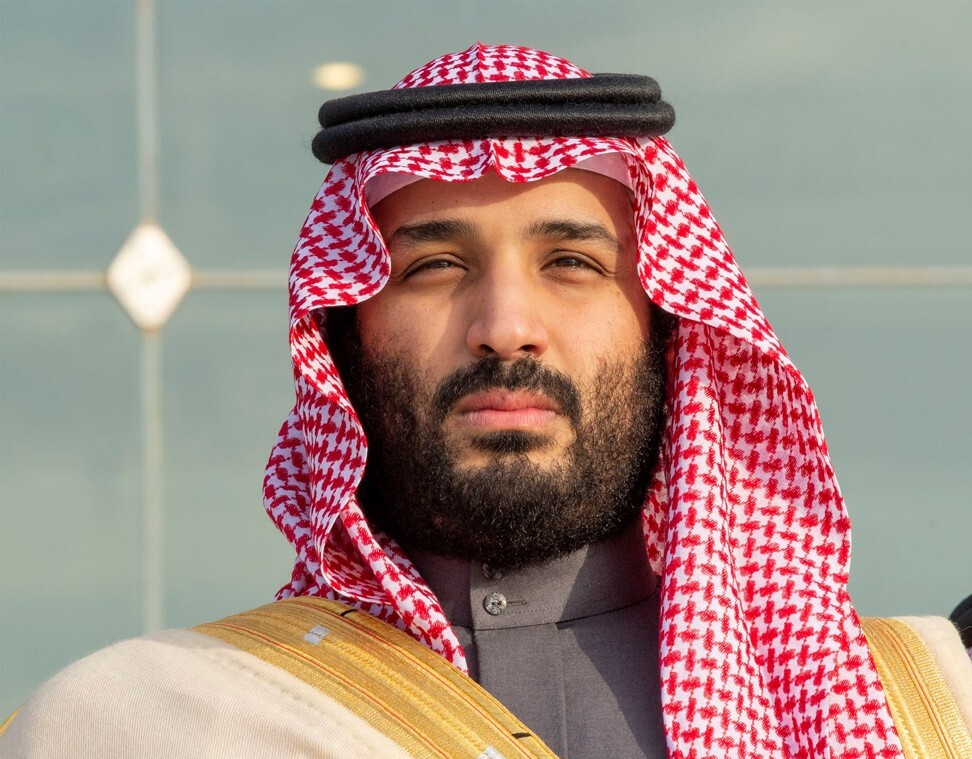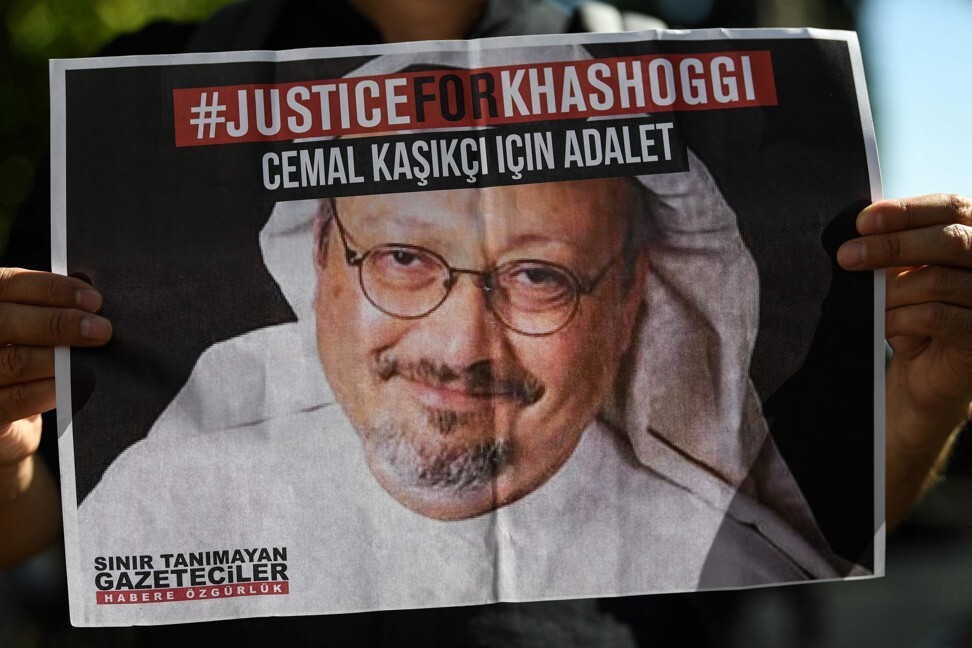
Saudi prince approved killing of journalist Jamal Khashoggi, declassified US report reveals
- Crown Prince Mohammed bin Salman ‘approved an operation in Istanbul, Turkey to capture or kill Saudi journalist Jamal Khashoggi’, the report said
- President Joe Biden’s administration announced sanctions and visa bans targeting Saudi Arabian citizens over the killing of Khashoggi
The intelligence report said that given Prince Mohammed’s influence, it was “highly unlikely” that the 2018 murder could have taken place without his green light. The killing also fit a pattern of “the Crown Prince’s support for using violent measures to silence dissidents abroad”.
Khashoggi, a critic of Prince Mohammed who wrote for The Washington Post and was a US resident, was lured to the Saudi consulate in Istanbul in October 2018, then killed and cut into pieces.
US President Joe Biden’s decision to order the release of a declassified version of the intelligence report – first completed under Donald Trump – was a sharp departure from his predecessor, who had vowed to keep working with Saudi Arabia due to the kingdom’s lavish purchases of US weapons and shared hostility toward Iran.
Biden spoke by telephone late on Thursday with 85-year-old King Salman after the White House made clear he had no intention of speaking to the 35-year-old crown prince, who by contrast had formed a friendship with Trump’s son-in-law Jared Kushner.
The White House said that Biden and the king emphasised the countries’ security ties and “the US commitment to help Saudi Arabia defend its territory as it faces attacks from Iranian-aligned groups”. However, in a shift from the Trump era, Biden also “affirmed the importance the United States places on universal human rights and the rule of law”.
Joe Biden calls Saudi Arabia’s King Salman as Khashoggi report looms
The Biden administration announced sanctions and visa bans on Friday targeting Saudi Arabian citizens over the killing of Khashoggi.
In honour of the slain writer, Secretary of State Antony Blinken announced the “Khashoggi Act” that will ban entry into the United States of foreigners who threaten dissidents or harass reporters and their families and immediately placed 76 Saudis on the blacklist.
“We have made absolutely clear that extraterritorial threats and assaults by Saudi Arabia against activists, dissidents and journalists must end. They will not be tolerated by the United States,” Blinken said.
But the United States stopped short of directly targeting the 35-year-old crown prince, known by his initials MBS, with officials contending there was no precedent for sanctions on a senior leader of an ally.
Blinken, questioned by reporters, said that “this is bigger than any one person”, explaining that Biden is trying “not to rupture the relationship, but to recalibrate to be more in line with our interests and our values”.
An advocacy group founded by Khashoggi, Democracy for the Arab World Now, called on Biden to go further by imposing sanctions on Prince Mohammed – with a number of lawmakers from Biden’s Democratic Party also pushing for more action.
“We must also ensure that there are real consequences for individuals like MBS; if not, autocrats around the world will get the message that impunity is the rule,” said Bob Menendez, chairman of the Senate Foreign Relations Committee.
The Saudi foreign ministry in a statement denounced the “negative, false and unacceptable assessment” and rejected “any measure that infringes upon its leadership”.
The Saudi government, which in the initial days said it had no information on Khashoggi, said it accepts responsibility for the killing but casts it as a rogue operation that did not involve the prince.
Khashoggi fiancée sues Saudi crown prince in US over journalist’s murder
A veteran Saudi journalist and editor, Khashoggi was in self-exile and living in the United States, writing articles critical of the crown prince when he was assassinated on October 2, 2018.
The writer had been told by Saudi Arabia’s ambassador to the United States to go to the Saudi consulate in Istanbul if he wanted to obtain documents for his forthcoming marriage to a Turkish woman, Hatice Cengiz.
There, the 59-year-old was killed and his body dismembered by a team sent from Riyadh under the direction of a top aide to Prince Mohammed, Saud al-Qahtani.
Just one month after the murder, the US Central Intelligence Agency concluded with high confidence that Prince Mohammed had ordered the assassination, according to The Washington Post.
But, determined to maintain strong relations with Riyadh, Trump refused to publicly hold the Saudi strongman responsible, even as the US government demanded the perpetrators be punished.
The published intelligence report asserts that the 15 people sent to target Khashoggi in Turkey included members of Prince Mohammed’s “elite personal protective detail”, the Rapid Intervention Force.
According to The Washington Post, US intelligence also discovered a phone call from Prince Mohammed to his brother Khalid bin Salman, the Saudi ambassador to the United States, in which Prince Mohammed gave instructions for luring Khashoggi to Istanbul.
Another piece of evidence was a recording of the murder obtained by Turkish intelligence from inside the Istanbul consulate. This helped identify the participants and showed communications between them and Riyadh.
Few observers of Saudi Arabia believe the murder could have taken place without the knowledge of Prince Mohammed, a calculating strongman who has jailed a number of critics and locked up competing factions in the royal family.
Saudi Arabia overturns death sentences for murder of Jamal Khashoggi
The closed-door trial exonerated the two officials widely seen as the masterminds: Qahtani, the royal court’s media adviser, and deputy intelligence chief Ahmad al-Assiri. Both are part of Prince Mohammed’s inner circle.
Five unnamed defendants were sentenced to death and three others given stiff prison terms. Nine months later, the death sentences were withdrawn by the court and replaced with sentences of up to 20 years.
Amnesty International and Reporters Without Borders both branded the case a “parody of justice”.
But it assuaged the Trump administration, whose main action was to place 17 suspects in the case, including Qahtani but not Assiri, on its sanctions blacklist.

.png?itok=arIb17P0)

